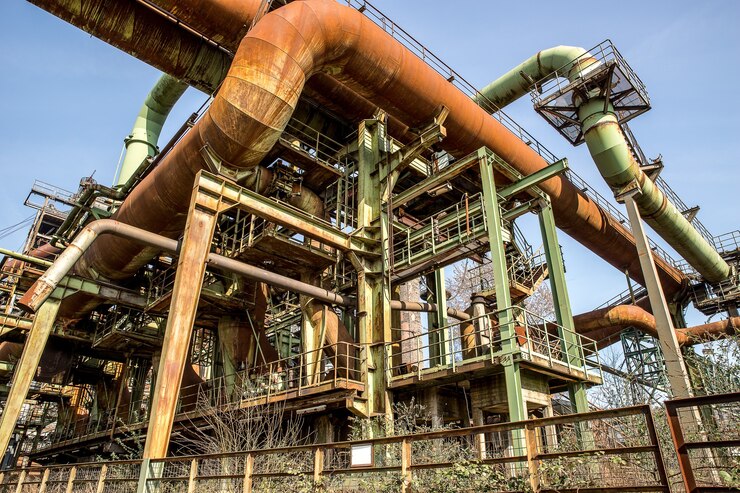The allure of integrated oil companies (IOCs) has long captivated ambitious individuals seeking impactful, well-paying careers. These global giants handle every facet of the oil and gas journey, from exploration and drilling to refining and marketing.
But in an age of climate concerns and shifting energy landscapes, “Is integrated oil companies a good career path?” becomes a question demanding nuanced answers.
The Allure of Integrated Oil Companies: A Glittering Treasure Trove

For many, the answer leans towards a resounding “yes.” Let’s dive into the factors contributing to this appeal:
1. Financial Prosperity: IOCs are profit-generating powerhouses, offering highly competitive salaries and benefits packages. Starting salaries for engineers, geologists, and other technical roles often surpass industry averages, with ample opportunities for bonuses and career advancement. This financial stability attracts individuals seeking long-term security and upward mobility.
2. Intellectual Stimulation: The work encompasses a fascinating blend of science, engineering, and business acumen. From navigating complex geological formations to optimizing refining processes and charting global trade routes, IOCs offer intellectually stimulating challenges that keep minds sharp and engaged.
3. Global Reach and Impact: Few industries boast the global footprint of IOCs. Working for one means contributing to a vast network spanning continents, interacting with diverse cultures, and witnessing the intricate dance of international energy markets. This exposure broadens perspectives and nurtures a global mindset.
4. Cutting-Edge Technology: IOCs are at the forefront of technological advancements in energy exploration, production, and processing. Working in such an environment grants access to cutting-edge research facilities, state-of-the-art equipment, and the opportunity to collaborate with brilliant minds pushing the boundaries of what’s possible.
5. A Culture of Excellence: Top IOCs cultivate a culture of high performance and continuous improvement. Their rigorous training programs, mentorship opportunities, and focus on excellence provide valuable professional development, equipping individuals with transferable skills that excel in any career path.
6. Social Responsibility and Sustainability: Recognizing the environmental and social implications of their activities, many IOCs are actively adopting responsible practices and investing in renewable energy sources. This shift towards sustainability presents opportunities for individuals passionate about driving positive change within the industry.
Challenges and Doubts that Linger

Yet, the path to oil riches isn’t paved solely with diamonds. Challenges and potential drawbacks deserve consideration before embarking on this journey:
1. Volatility and Job Security: The oil and gas industry is notoriously cyclical and susceptible to fluctuations in global prices and geopolitical events. This volatility can translate to layoffs and hiring freezes, particularly during downturns, raising concerns about job security.
2. Environmental Impact: As a fossil fuel-based industry, IOCs face increasing scrutiny for their environmental impact. Working in this sector might clash with personal values for individuals deeply concerned about climate change and seeking careers aligned with sustainability goals.
3. Ethical Considerations: Some may grapple with the ethical implications of working in an industry linked to political conflicts, environmental damage, and social inequalities. Navigating these complex ethical landscapes can raise internal conflicts for individuals with strong moral compasses.
4. Uncertain Future: The rise of renewable energy sources and growing calls for decarbonization raise questions about the long-term sustainability of the oil and gas industry. While IOCs are adapting and diversifying, the future trajectory remains uncertain, posing a potential career risk for those solely focused on traditional oil and gas roles.
5. Work-Life Balance: Demanding schedules, international travel, and remote work locations can be challenging for individuals prioritizing work-life balance. The nature of the work often requires long hours and flexibility, demanding sacrifices in personal time and leisure pursuits.
6. Gender Imbalance: The oil and gas industry has historically been male-dominated, creating challenges for women seeking equitable opportunities and career advancement. While progress is being made, gender disparity remains a concern for women considering a career in IOCs.
Best Jobs in Integrated Oil Companies

Integrated oil companies are the powerhouses driving the world’s energy needs. From exploration and production to refining and marketing, these titans of the industry offer a diverse range of career opportunities. But with so many options, where do you begin? This blog delves into some of the best jobs in integrated oil companies, catering to various skill sets and interests.
Upstream: Unveiling Earth’s Buried Treasures
The upstream sector is the thrilling frontier where exploration and production take center stage. Here are some of the best jobs for the adventurous spirits:
- Geologist: Unearth the secrets of the Earth, interpreting seismic data and rock formations to identify potential oil and gas reserves. This role demands a keen eye for detail, analytical skills, and a passion for understanding the planet’s geological history.
- Petroleum Engineer: Master the art of extracting oil and gas from the ground, designing and implementing drilling and production operations. This dynamic role requires strong problem-solving skills, technical expertise, and the ability to thrive in challenging environments.
- Drilling Engineer: Orchestrate the symphony of drilling rigs, ensuring the safe and efficient construction of oil and gas wells. This high-pressure job demands meticulous planning, technical know-how, and the ability to make critical decisions under pressure.
Midstream: Bridging the Gap Between Source and Market
Once the precious hydrocarbons are extracted, they embark on a journey through the midstream sector. Here are some key roles in this crucial link:
- Pipeline Engineer: Design, construct, and maintain the intricate network of pipelines that transport oil and gas across vast distances. This role blends engineering prowess with project management skills, ensuring the smooth flow of energy across continents.
- Operations Technician: Keep the midstream infrastructure humming, monitoring pipelines, ensuring safety protocols, and performing routine maintenance. This hands-on job demands technical aptitude, attention to detail, and a commitment to operational excellence.
- Control Room Operator: The watchful eye of the midstream, monitoring data streams, identifying potential issues, and optimizing the flow of hydrocarbons through pipelines. This fast-paced role requires excellent analytical skills, quick decision-making abilities, and the ability to stay calm under pressure.
Downstream: Transforming Oil into Everyday Essentials
The downstream sector takes the raw materials and refines them into the fuels and products that power our lives. Here are some of the most sought-after roles in this domain:
- Chemical Engineer: Design and operate complex refinery processes that transform crude oil into gasoline, diesel, and other petroleum products. This intellectually stimulating role demands a strong understanding of chemical reactions, process optimization, and safety protocols.
- Marketing Specialist: Craft compelling marketing campaigns, analyze market trends, and position the company’s products in a competitive landscape. This dynamic role requires creativity, communication skills, and a finger on the pulse of the ever-evolving energy market.
- Sales Representative: Build relationships with clients, negotiate contracts, and ensure the smooth delivery of petroleum products to various industries. This customer-centric role demands strong communication skills, persuasive abilities, and a deep understanding of the oil and gas market.
“Is Integrated Oil Companies a Good Career Path?”: A Personal Balancing Act
Ultimately, the answer hinges on a deeply personal evaluation. “Is integrated oil companies a good career path?” becomes a question about aligning individual values, skills, and aspirations with the realities and challenges of the industry.
For those driven by intellectual challenges, financial stability, and global impact, and capable of navigating ethical complexities and adapting to a shifting landscape, IOCs offer a rewarding and enriching career path. However, for those prioritizing environmental sustainability, ethical alignment, and a stable work-life balance, alternative paths might be more fulfilling.
The key lies in self-awareness, thorough research, and understanding the trade-offs. Whether your answer to “Is integrated oil companies a good career path?” is a resounding “yes” or a cautious “maybe,” the decision should be informed, intentional, and aligned with your personal vision for the future.
Additional:
- Top 6 Director Of Operations Jobs In 2024
- Is Medical/Dental Instruments A Good Career Path?
- Is Clothing/Shoe/Accessory Stores A Good Career Path?

